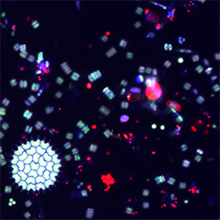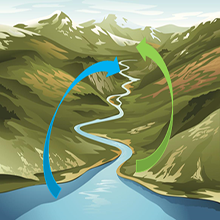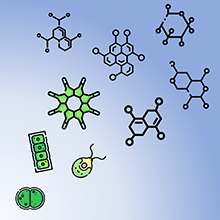Department Aquatic Ecology
Biodiversity & Ecosystem Functioning

Welcome to the Algal Biodiversity and Ecosystem Functioning Group
We are a part of the Aquatic Ecology Department at Eawag. Our work aims to understand how differences among species allows them to coexist and, in turn, how their coexistence controls the ecological functioning of communities and the services they provide to humanity. Research in our group focuses largely on freshwater phytoplankton for a number of reasons: planktonic organisms are great model organisms for testing and advancing both evolutionary and ecological theory, they are important drivers of global primary production, they are the base of freshwater food webs, and they may be an important source of energy for humans in the future. Our approach is largely experimental and it aims to test theory using microcosm, mesocosm and field experiments. We also use meta-analysis and model-fitting approaches to draw inferences from large data-sets and field survey data.
Research Focus
Causes of biodiversity: the environment, evolutionary history, and traits:
1) Is biodiversity really declining locally in natural ecosystems?
2) How do species respond to and avoid competition, in order to coexist?
3) Does local adaptation to competition lead to trait divergence, enabling coexistence?
4) How does the environment control the traits responsible for competitive coexistence?
Consequences of biodiversity at the ecosystem level:
1) What are the impacts of intra- and interspecific diversity on algal primary production and other ecosystem functions?
2) Are diverse systems more stable?
3) What traits drive stability?
Current Projects
Team
Current Publications
Photos are by Rogelio Moreno G.















